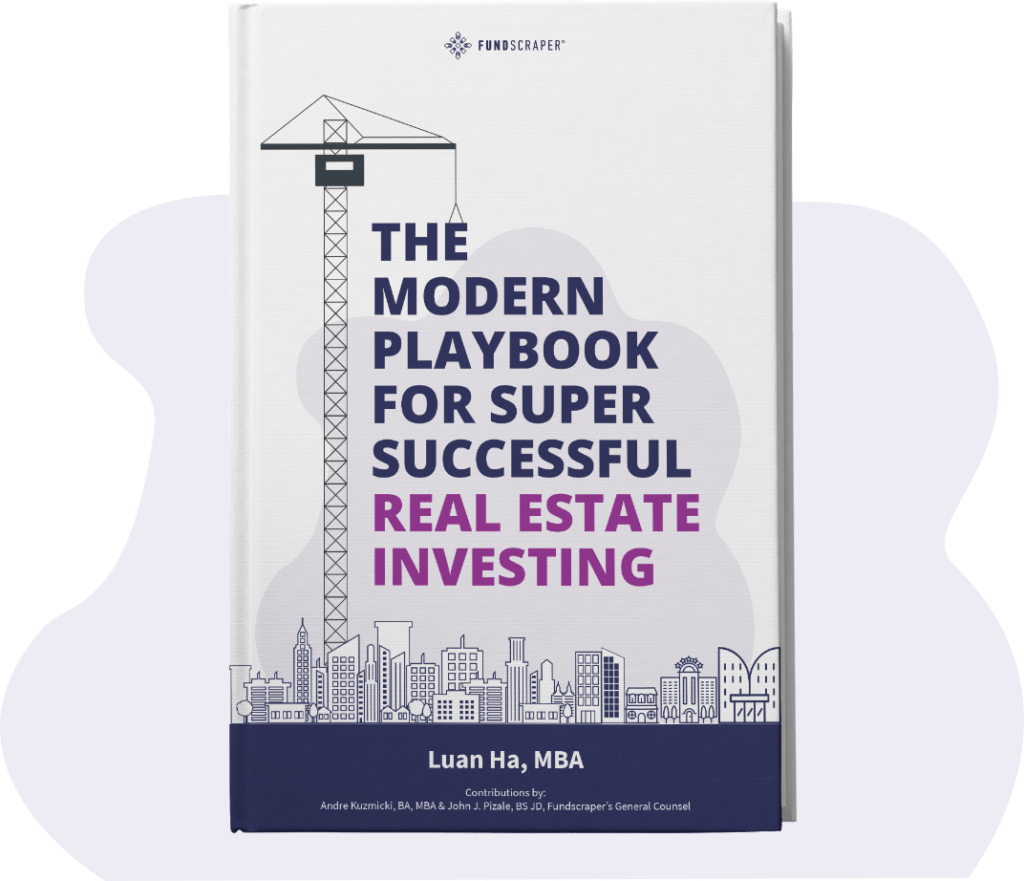You’re trying to grow your nest egg, but you have limited capital and can’t risk losing too much. You want to do more with your money, but you don’t know where to start or who to ask for help. All the while, your savings account is earning next to nothing. Yep: You’re in an investing rut. And we can help get you out of it. It’s time to learn about passive real estate investing.
How can I passively invest in real estate? testing
There are many different ways to invest in real estate, both actively and passively. Passive real estate investing might sound intimidating, but it’s not as complicated as you might think. And no, you won’t have to perform any landlord duties. Passive real estate investing is an avenue many modern and savvy investors are choosing to explore. Passive real estate investing includes:
- REITs
- Unit Trusts
- Mortgage Investment Corporations
- Mortgages
- Syndicate Mortgages
- Buying income producing properties
- If you’d like to learn more about each of these options, click here to read more.
Today, we’re focusing specifically on mortgage investing. Paired with traditional investments like stocks and bonds, mortgage investing provides stable returns and lower fees while mitigating investment risk. Careful real estate investment will give back substantially more than a savings account or a GIC and will often outperform popular mutual funds and exchange traded funds. Most importantly, it enhances diversification to a portfolio of publicly traded securities. It’s recommended that every investor, big or small, put some portion of their investment portfolio in private real estate.
Mortgage investing is a great way to passively grow your nest egg. It doesn’t require substantial upfront investment, but you’ll still earn stable monthly income and higher returns.
Don’t have enough upfront capital to make a downpayment on a house? Priced out of the housing market altogether? Worried you’re not saving enough for retirement? There’s still plenty of time to invest and save.
In this article, Fundscraper provides an investing playbook to show you how to invest as little as $5,000 in mortgages without the hurdles, obstacles, and barriers of traditional investing. Consider this your primer on mortgage investing. We want to empower you to get out of your investing rut and start growing your wealth. Here’s how to start building your real estate portfolio with a low upfront capital investment.
What is mortgage investing?
Mortgage investing isn’t buying a building or a piece of land. It’s buying (or investing) in what the building owner needs in order to buy a property: the mortgage! A mortgage is a loan that is backed up by the property the owner has purchased. If the borrower fails to pay you back, you can take the property and sell it to pay yourself back. A mortgage can be fractionalized, divided up, and everyone can take different pieces.
There are thousands of income products in our financial markets today. The oldest among the lot is mortgages and they remain today one of the top income products for institutions of all kinds and individuals seeking income. Therefore, a big concern for mortgage investors is whether or not the mortgagor (aka the borrower) can regularly meet its obligation to pay the interest the mortgage investment promises.
It’s time to start thinking differently about real estate investment.
How does mortgage investing work?
When you become a mortgagee—aka a person who lends money where the repayment obligation is secured by the property the borrowed money is being used to purchase—you lend your money out with the expectation that the money will be returned to you. To “secure” the repayment, the borrower gives the lender an interest in their property that will allow the lender to take ownership of the property if the borrower fails to repay the loan.
While the money is outstanding, the borrower will pay you a fee for the use of your money—in other words, interest. How much interest is paid by the borrower is decided between you and the borrower. The rate of interest is set on a yearly basis and the most common way it is paid is monthly.
There are three popular ways of investing in mortgages: public mortgage funds, private mortgage funds, and mortgage syndication.
- Public mortgage funds: You can invest in a publicly traded fund (meaning it trades on a public exchange and you can buy and sell whenever you please) that is made up of mortgages. Each are easy to access through your investment broker or through a direct investment account that is likely available through your bank. Yet the drawback of these investment vehicles is that they are publicly traded. If you don’t already have at least 20% of your current portfolio in the private real estate market, we recommend further diversifying your investment portfolio first via one of the two options below.
- Private mortgage funds: A private fund does not publicly trade, and once you invest your money, you might not be able to get it back right away. The returns on a private fund can often be significantly better than a public fund, generally the result of a unique skillset the asset manager brings to the mortgage fund. A licensed mortgage broker or securities dealer like Fundscraper can advise you as to which funds are most suitable for you.
- Mortgage syndication A mortgage syndicate is where you and one or more persons fund a mortgage directly. Investing in a mortgage syndicate is strictly for people who are experienced mortgage investors, as the investment return can be inordinately good or ruinous. When you invest in a mortgage syndicate, you acquire a direct fractional interest in the mortgage—you go on title! Mortgage syndicates are generally private, and good mortgage syndicators will only admit investors they know are sophisticated and are able to withstand the loss if the investment fails. To become part of a syndicate, one generally has to go through a qualified mortgage broker or securities dealer like Fundscraper.
3 Important considerations for first-time mortgage investors
- What are the risks?
- No guaranteed high return. In general, the higher the rate of return, the higher the risk of the investment.
- A lineup for repayment. If something goes wrong with the project, ask whether the syndicated mortgage is a first, second or subsequent mortgage. If the project fails, the first mortgage would receive any proceeds from the liquidation first. Second and subsequent mortgages only receive payments if and when the first mortgage has been fully paid off.
- ‘Secured’ does NOT mean guaranteed. It is true that your investment will be used to create a mortgage that is registered and secured directly with the land or building associated with that mortgage. But, if something goes wrong with the project you may rank behind other lenders and investors and may not get your money back.
- No investor protection fund. Syndicated mortgage investments are not backed by the Government of Ontario or any other investor protection fund; there is no way to guarantee you will get your money back.
- Lack of liquidity. If you want to withdraw your money before the end of the term, there is no assurance that there will be a market for the resale or transfer of the mortgage.
- Ask about the property value. Your security is only as good as the value of the property. Ask to see the appraisal the brokerage used to determine the value.
How long will my capital be locked up?
- Before you invest in a mortgage, you should consider how long your capital will be locked up in the investment. If you think you will need your money in the next 12 months, this probably isn’t the right investment for you right now. If you have money that you simply want to sock away and forget about, then mortgages are something you should definitely look at.
- Mortgages have a term and investors who invest directly in a mortgage are expected to hang out of the entirety of the term of the mortgage. The term of a mortgage can be as short as six months or as long as the parties may agree. 12 months to 3 years tends to be the most common terms for mortgages in the private markets. 5 years is the most common term for a residential home mortgage offered by the banks.
Will I get my money back?
- When you lend money to someone, you do it on the expectation that the borrower will pay you back. If there is little likelihood that you will be paid back, then you probably would not lend. If you’re lending, you want to be aware of the borrower’s circumstance, which will give you some idea as to the likelihood of being repaid. If the borrower has a stable job, is known to pay debts when due, and repayment appears to be well within the borrower’s means, you have a good chance of being repaid.
- A mortgage secures repayment. As a mortgagee, if the borrower fails to pay you, you’re within your rights to sell the property and earn a profit on the proceeds. However, a mortgagee can only take what they’re owed under the mortgage, plus any expenses enforcing the mortgage. If there’s any surplus, it must be returned to the borrower.
- If you sell the property at a loss, in Ontario, the borrower will remain liable for the amount outstanding and owed to you. In some jurisdictions, especially in the United States, once the lender has taken over the property, the lender will have no claim against the borrower. It’s called a quitclaim, meaning the lender relinquishes its claim against the borrower.
Investing in mortgages wasn’t always simple. At Fundscaper, it is.
How do I get started?
- Find a registered investment advisor. For a neophyte, investing in mortgages is complicated. Unless you have years of experience, you cannot do this alone. Registered advisors like Fundscraper make this complicated investment easy. The buying and selling of mortgages and investing in mortgages is all regulated by a lengthy set of laws. Registered advisors like Fundscraper know the way through the maze of this book of laws, regulations, notices and policy statements.
- Check for a license. If you are investing in a fund or a pool of mortgages or into a mortgage investment corporation or a mortgage syndicate you will want or need the services of a registered securities dealer. Only mortgage brokers and agents licensed with FSCO can engage in syndicated mortgage transactions, and only licensed mortgage brokers (not agents) can sign the required forms. Find a licensed broker, agent or brokerage by checking FSCO’s list here.
- Get independent advice. You are strongly advised to obtain independent financial and legal advice from someone not connected to the investment, before investing in a syndicated mortgage.
- Read and understand all associated paperwork. Your mortgage broker must complete the proper paperwork and provide it to you. The brokerage must also keep appropriate documentation on file, including records that detail discussions with you. Before you sign, ask questions and make sure you understand everything.
- Ensure full disclosure. Mortgage brokerages must take reasonable steps to ensure that the mortgage investment they recommend is suitable based on your needs and circumstances. They must also advise you of the material risks of the investment, disclose potential conflicts of interest, and provide evidence of the borrower’s ability to meet the mortgage payments
We invite you to speak to a Fundscraper dealing representative to get more information, learn about your investing options, and decide which investment strategy is right for you. Trust us: We’re experts. You can invest in real estate, and you can do it with as little as $5,000. Let Fundscraper show you how. Book a call with one of our advisors today.
When you invest with Fundscraper, you join a community of like minded investors exploring equity investments in mortgages. Get the feel of what it’s like to be a “mortgagee” (like, be a real lender golly gee!), without having to actually buy a mortgage!”
Start Investing in Real Estate Backed Investments Today
Explore the investments available on Fundscraper.




